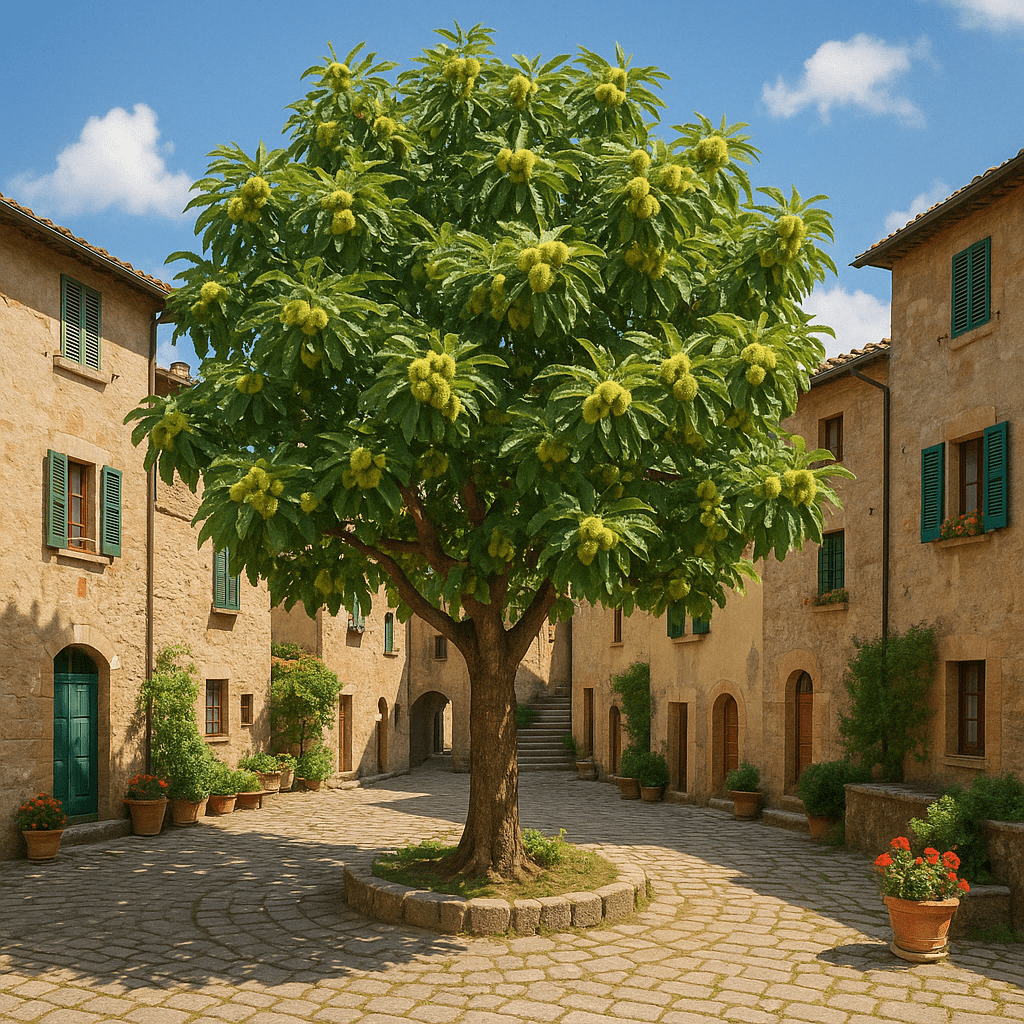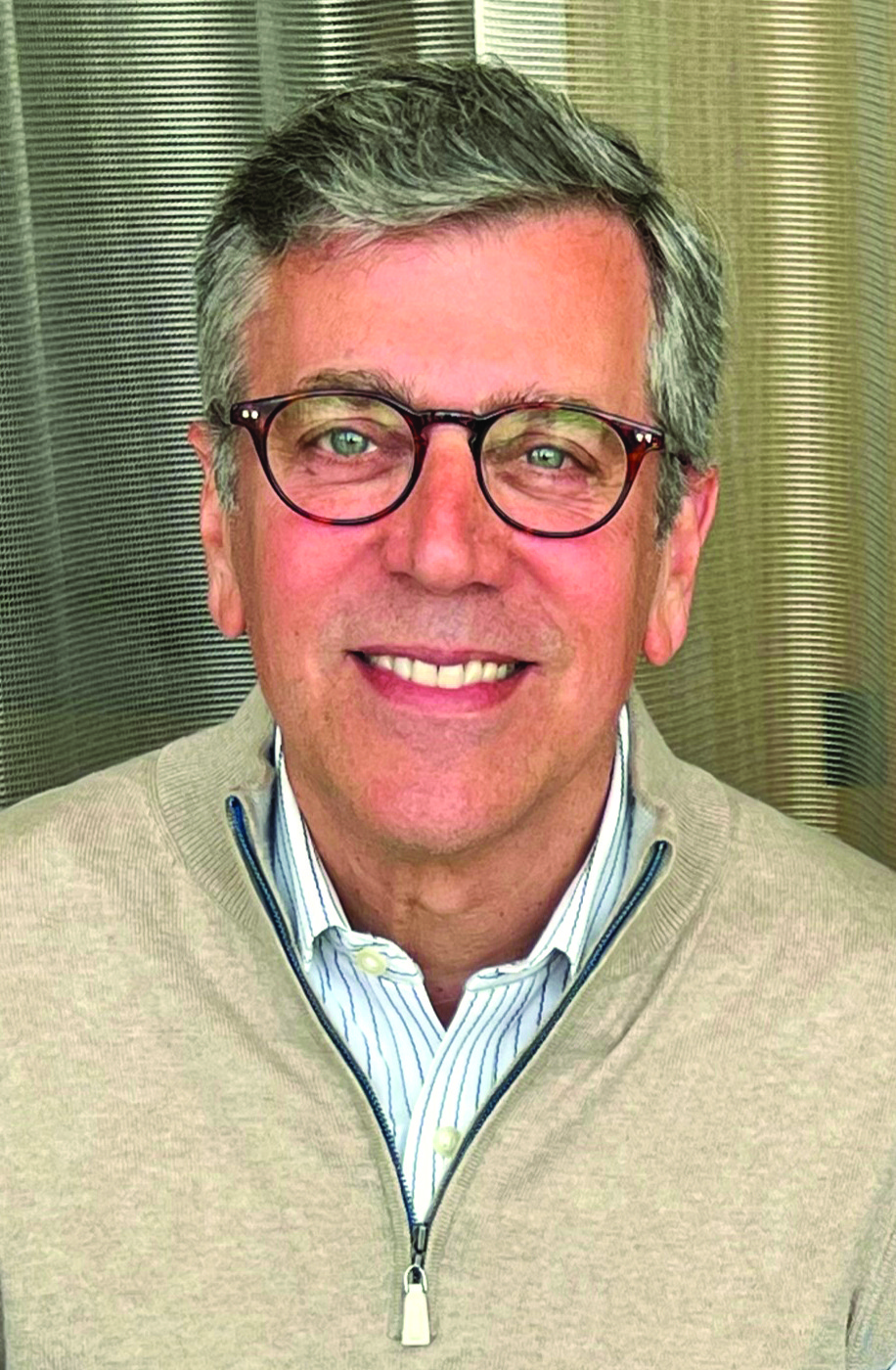
“Pull over! I think we are supposed to turn here,” my wife said, riding shotgun.
My eyes followed her pointed finger to the right, then upward. As I stretched my neck forward and hovered over the dashboard, I got a full view of the ascending cobblestone: a road not much wider than our rental car, lined with dwellings and doorsteps.
“Yeesh!” I exclaimed before muttering, “what if we cannot turn around?” “It says to turn here,” she said firmly.
Hard swallow. “Well here we go then. I guess this is why they gave us a Jeep.”
We climbed upward, accelerating to maintain ascent into the mountainous town, and hoping to discover our destination. After a long minute we started to level off. Phew! What a relief. Up ahead, I saw an open area. There we found a church, a café, and the entrance to the castle grounds.
Guided by stone walls, we pulled into the parking area and came to a stop under an old chestnut tree. This plant was quite a specimen. Our vision became fixed by the tree’s beauty, scale, and movement. Its lower limbs were at play with gravity, and the outstretched branches gave way to a broad silhouette. Dried and serrated leaves were flushed from the growing season, and incredibly, spiny burrs were dropping all around us. It’s as if Castanea sativa was saying, "Welcome, it is time. We have been waiting for you.” Surely, we had arrived in the territory of the Slow Food Presidia.
Would I like a cappuccino? Does Santa want a cookie? I quickly replied with a more simple, “Yes, cappuccino please.”
The drink was delicious. As we finished our last sips, we started to relax and breathed easier. Content and caffeinated, we donned aprons and hairnets before being whisked into the kitchen.
The room was old perfection. Its stoves, benches, cabinets, and equipment had a patina that was intoxicating. I gazed, and for a moment, time was suspended. It all seemed surreal.
As we marveled at the space around us, Alessandra introduced us to her assistants: Maria and Inuk (EE nook). Maria is a mature woman from the village. Inuk is a young man with a warm smile. He is from Uganda and studying in Piedmont, Italy as part of his culinary education. After introductions, the work began.
Together, we started on regional recipes of the Langhe area in Italy, all made with locally-sourced ingredients. Alessandra was quiet and artful. Maria was vigilant, with a watchful eye on technique and supplies. Their interactions provided an instant sense of community.
“So Inuk, what do you think about the Slow Food movement?” I asked.
He replied, “At first, I thought, but is it really sustainable? How can we feed everyone with this thinking? But, then I think it is a matter of acceptance.”
“What do you mean by acceptance?”
“Well, how will you accept your food? I mean, do you accept your food in a plastic box?” “Huh, that is a good question,” I replied.
Then I was quiet. I carried this thought with me throughout our cooking class, then into lunch and beyond. It is here with me today.
Inuk had a point. What will we accept? Who created the priorities that guide how things work? So many times in our lives we are faced with having to accept conditions, relationships, and outcomes. But should we be willing to accept less than idyllic systems when wisdom suggests otherwise? And what if these systems pertain to taking care of each other and our planet?
I think about our younger colleagues and wonder how they will find their profession. And, how will we accept change to the traditional model of dentistry that we have known, and the influence change has on the future of our profession?
Should we create a larger movement to protect the principles of our profession? I also wonder what our patients think. Are they aware of changes to patient care that they may need to accept in the future?
In 1948, the naturalist Aldo Leopold wrote, “We abuse land because we regard it as a commodity belonging to us. When we see land as a community to which we belong, we may begin to use it with love and respect.” I hope that we can focus our attention and energy on preserving the health of our dental community and the model of dentistry that we have known for many years.
I pray that we maintain the dental traditions that place patient care as a top priority and resist the deconstruction of our profession by those who see patient care as a commodity. Rapid changes to any system can lead to thoughtless loss that may never be recaptured. “Just like a deer herd lives in mortal fear of its wolves, so does a mountain live in mortal fear of its deer”, said Leopold. We should be careful who we allow to graze on our dental profession. Do we accept that our profession becomes a commodity to be eaten up like fast food, only to be discarded once its integrity is lost?
I think about our time in the Langhe area of Italy; the lessons, the land, the people – new friends with familiar souls. It is a unique region of agroecology that has been nurtured over a long period of time. A glistening example of hope and dedication that can only be illuminated by synchronous communion of man and the earth. As a time-honored profession, dentistry shares a similar history. It is a noble example of a community dedicated to caring for something other than itself, one that is trusted and committed to excellence. Should we accept that anyone other than those in dentistry shape the future of our profession?
